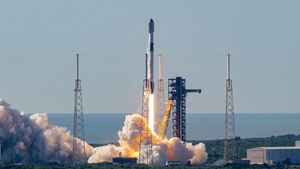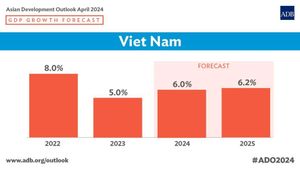Motorists will need to prepare for significant increases at the pump starting Wednesday, February 5, 2025, as new data reveals both petrol and diesel prices are set to rise. According to the Central Energy Fund (CEF), the anticipated hike stands at approximately 95 cents per litre for petrol 93, 88 cents for petrol 95, and between R1.08 to R1.11 for diesel, setting up troubling trends for household budgets across South Africa.
While the official confirmation of fuel price adjustments by the Department of Mineral Resources and Energy (DMRE) is pending, the figures represent the latest challenges faced by South Africans already grappling with economic strain. "Expect to pay more for fuel from Wednesday, February 5, with month-end data from the Central Energy Fund (CEF) pointing to significant increases for both petrol and diesel," reported IOL. Diesel 0.05% is projected to jump around R1.11 per litre, with petrol entering the R22 territory, increasing concerns for daily commuters and businesses alike.
The CEF’s predictions are attributed to several pressing factors influencing the fuel market. Global oil prices have fluctuated significantly; after peaking at $82 per barrel, they recently lowered but remain volatile. According to Advocate Lavan Gopaul, "If the Rand weakens against the Dollar, the price of imported oil rises, causing petrol prices to increase." This perspective emphasizes the interconnectedness of local economics with global markets.
Over the past few months, South Africans have experienced consistent increases at the fuel pumps with previous hikes recorded at 12 to 19 cents (January), 17 cents (December), and 25 cents (November), establishing trend lines pointing to future concerns. This February's forecasted price increases are necessary adjustments stemming from under-recovery calculations during January, coupled with the weakening South African rand, which has added around 36 cents of under-recovery for this pricing period. Indeed, as noted by economist Dawie Roodt, "Unfortunately, if the Rand remains where it is at the moment, I’m afraid another increase can be expected next month.”
The economic significance of these rising fuel prices is immense, particularly for households. Petrol is integral to the daily activities of South Africans who rely on it for commuting to work, transporting goods, and running businesses. Gopaul pointed out, "The rising petrol price is a serious concern impacting individuals, businesses, and the broader economy." This general concern subdivides as households, especially among lower-income brackets, bear the brunt of these increases out of necessity.
On the other hand, inflationary pressures begin to ripple throughout the economy as the cost of goods rises with the increased cost of transportation. The relationship between fuel prices and inflation traces back to basic economic theories, where rising transport costs directly translate to increased prices on retail goods. Rising fuel prices hinder economic growth potential by discouraging investments, particularly within sectors bolstered heavily by transportation logistics, such as agriculture.
Understanding the components behind the petrol price helps unravel these challenges. The Basic Fuel Price (BFP) accounts for the most significant portion of the petrol price, tied directly to international market prices for crude oil. Local governance also factors significantly as fuel levies set by the government contribute to national funds for road maintenance and infrastructure projects. Recent history shows increases within these levies, compounding financial strain on consumers providing necessary revenue for national needs.
Further complications arise from the exchange rate, as South Africa depends heavily on imported crude oil, meaning the relative strength of the rand against the US dollar is not merely academic, but central to the fuel pricing dynamic. The volatility of the rand due to local events or international economic landscapes reflects directly on the costs incurred by fuel importation.
Logistical transportation costs for moving oil from refineries to petrol stations present another obstacle. Disruptions within supply chains, especially those seen recently due to logistical bottlenecks, have intensified the potential for fuel price increases. The lack of domestic refining capacity has pressed South Africa closely against the fluctuated global oil prices, leading to significant reliance on imported products.
Despite being at the mercy of global market changes, local initiatives to improve domestic energy security could mitigate some negative impacts tied to petrol price increases. Investing efforts to reduce dependency on imported oil could stabilize long-term affordability for consumers. Meanwhile, appropriate management of the fuel levies and enhancing infrastructure also stands to benefit overall economic resilience.
Looking to the future, addressing challenges related to fluctuated fuel prices remains atop the agenda for the South African government. With prices on the rise, the immediate impacts on consumers, households, and business sustainability are stark, but with collaborative dialogue and strategic action, there might be pathways to assist citizens and refine the economic structure to weather these turbulent times. The complex issue surrounding petrol prices is poised to remain relevant, requiring both awareness and adaptation as the nation moves forward.



